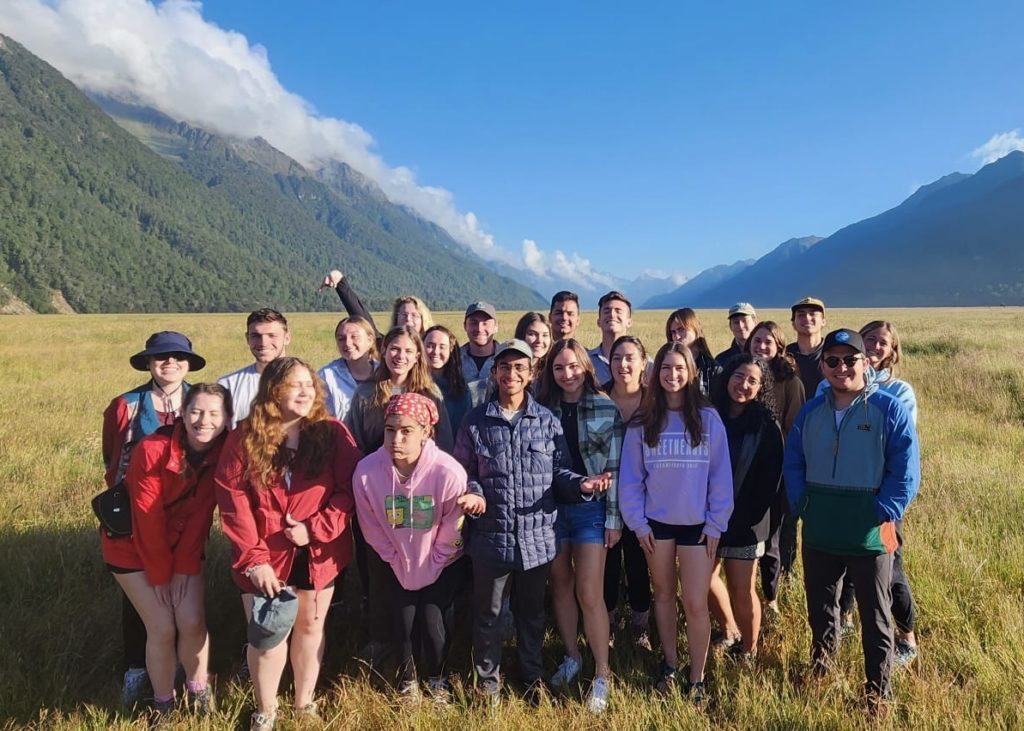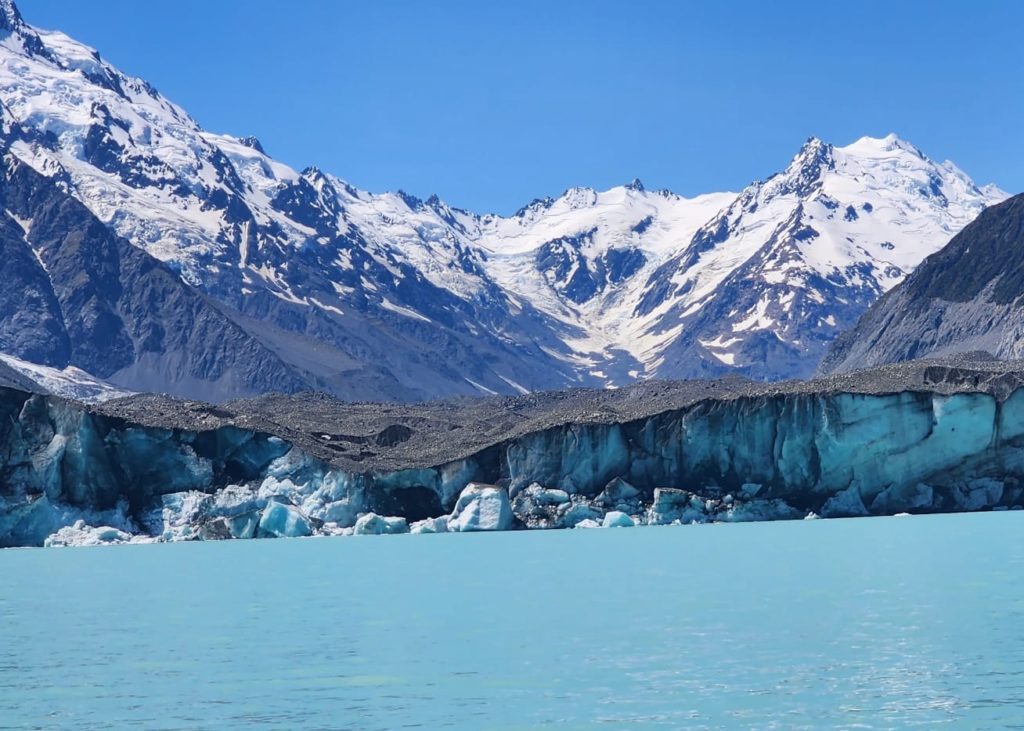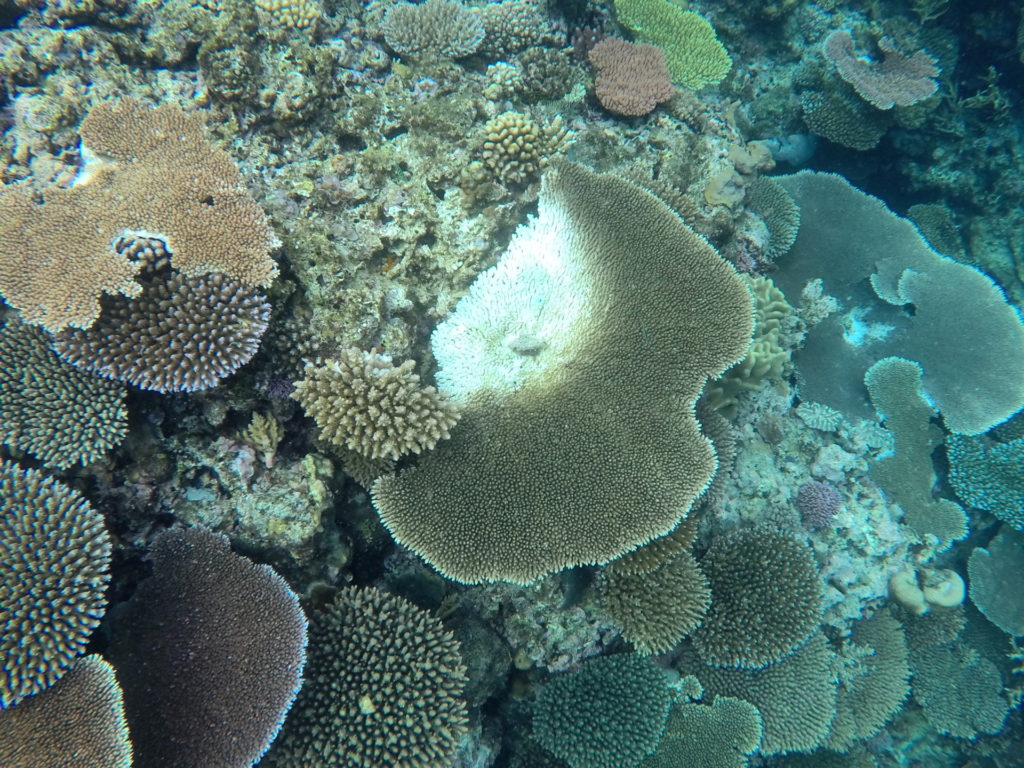Texas A&M students study abroad in New Zealand and Australia
Course explores diversity of natural resources and ecotourism
From the alpine glaciers of Aoraki-Mount Cook to the tropical shores of the Great Barrier Reef, 24 students from across the Texas A&M University recently explored the diverse natural resources and complex conservation topics of New Zealand and Australia.

The course, led by Gerard Kyle, Ph.D., professor and associate department head for academics in Texas A&M’s College of Agriculture and Life Sciences Department of Rangeland, Wildlife and Fisheries Management, is part of Texas A&M’s popular study abroad program recognized in a 2022 Open Doors report from the Institute for International Education.
Although this specific course has been available to students for roughly 15 years, this is the first time it has been offered since travel restrictions of the COVID-19 pandemic were lifted. For Kyle, it was an exciting return to the established mission of providing transformative student experiences abroad.
“Beyond understanding biodiversity and sustainability in this course, one thing that we stress with students is the aspect of being a global citizen,” Kyle said. “They share this planet, and these opportunities allow them to think more broadly beyond what happens in their local county, Texas or even the U.S.”
Expanding perspectives and academic interests
For Sam Hall, a sophomore pursing a degree in ecology and conservation biology in the College of Agriculture and Life Sciences, the trip not only fulfilled a lifelong goal of visiting New Zealand but broadened his perspective on natural resource management.
“New Zealand is a conundrum of a place,” Hall said. “If I had traveled there just on a normal vacation, I would have never learned about the things I did on this trip.”
He said invasive species have transformed the landscape of the island—from nonnative plants and insects to predators that threaten the survival of endangered native bird species.

“New Zealand is home to the yellow-eyed penguin, which is considered one of the rarest penguin species in the world,” Hall said. “Now the country has major issues with introduced ferrets raiding the penguin nests. These introduced species have just brought a whole world of problems.”
Non-native predators are such a threat to the environment that New Zealand launched Predator Free 2050, a government-funded initiative to eradicate the most damaging predators from the island.
“What I appreciated a lot is that they’re not throwing in the towel when it comes to these challenges,” Hall said. “They’re actively working to reintroduce native wildlife and plants.”
In addition to learning about these environmental challenges, students made a positive impact through a service-learning project removing invasive flora and planting native manuka trees at Tuhaitara Coastal Park.
“It was a beautiful experience, because we were actively doing something to help,” said Sophia Polisetty, a biology student in the College of Arts and Sciences.
Polisetty said she enrolled in the study abroad course to expand her knowledge beyond her academic focus of cell and microbiology and came away with renewed interest in natural resources and environmental issues.
“I ended up changing my schedule at the beginning of this semester to take an ecology course,” Polisetty said. “We’ve actually already covered a few examples from New Zealand that I learned about during the study abroad trip.”
Exploring a vulnerable World Heritage Site
In Australia, students continued to explore ecotourism and natural resources while immersed in the beauty of the Great Barrier Reef—first at the remote ecotourism resort of Lady Elliot Island and later in the town of Port Douglas.

The world’s most extensive coral reef ecosystem, the Great Barrier Reef was declared a United Nations Educational, Scientific and Cultural Organization, UNESCO, World Heritage Site in 1981. However, the past three decades have brought unprecedented ecological challenges in the form of climate change, pollution, illegal fishing and more.
Students attended lectures by Tyrone Ridgway, Ph.D., research associate at The University of Queensland and recognized expert on Great Barrier Reef and marine health.
“The environmental issues facing the Great Barrier Reef are world-wide environmental issues,” Polisetty said.
One problem is coral bleaching, which occurs when water temperatures are too warm. Students conducted surveys of the reef alongside marine biologists in Port Douglas, documenting any observations of this occurrence.
In 2022, UNESCO recommended the Great Barrier Reef be added to a list of endangered World Heritage Sites. As with most decisions affecting a wide array of industries and interests, the suggestion has produced responses of endorsement and condemnation.
Students explored these viewpoints through discussions and debates.
“We were divided up into different interest groups that would be affected by management decisions made on the Great Barrier Reef including mining and ports, commercial fishing, recreational fishing and tourism,” Hall said. “We presented our standpoint based on the industry we represented, and it was so interesting to consider the many perspectives.”
Academic diversity fosters student collaboration and development
Kyle said the course draws students from a variety of programs across the Texas A&M System because it is accessible to any major.
For example, of the 23 different majors represented during the trip, four students are enrolled at Texas A&M University at Galveston.
“Sometimes I’m surrounded by other pre-med students, and we tend to have a one-track mind,” Polisetty said with a laugh. “Being able to open up my world view and have a connection with the people on the trip, as well as the people we met, really provided a special perspective on all the subjects we discussed.”
Business honors student Lauren Moran said she continues to explore the environmentally focused standpoints encountered during the trip and has even incorporated environmentally responsible actions into her daily life.
“Understanding social responsibility as a business leader and wanting to have a positive effect on the environment is so important,” Moran said. “I think I’ve gained a sense of personal responsibility in knowing that we all have a part to play.”


